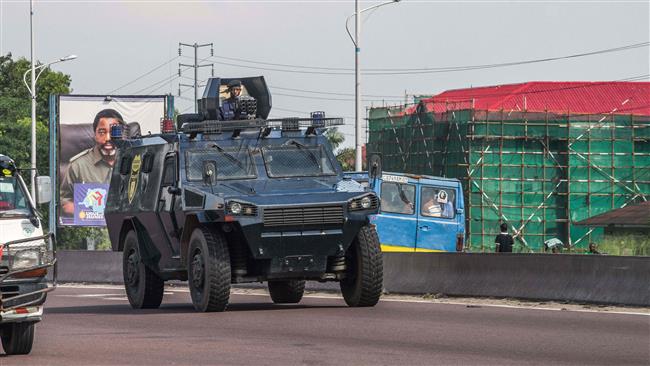7 UN peacekeepers killed in Congo-Kinshasa
Seven United Nations peacekeepers were killed in an operation against a rebel militia in the Democratic Republic of Congo’s restive east, the UN said on Thursday.
Ten other peacekeeping troops were wounded, and another is missing, UN spokesman Stephane Dujarric said in New York. Several Congolese were also killed or wounded in the joint operation, he said.
The deaths mark the biggest loss by the large UN force in DR Congo since the rebels killed 15 troops nearly a year ago.
Earlier Thursday, General Bernard Commins, deputy head of the MONUSCO force, said a joint operation had been launched with DRC troops on Tuesday against the Allied Democratic Forces (ADF), a jihadist group blamed for bloody attacks on civilians.
The offensive aimed at Kididiwe, about 20 kilometres (12 miles) from Beni, a city of between 200,000 and 300,000 inhabitants, said Commins.
“We are holding Kididiwe at present, after violent fighting with an armed group. At present, we are evacuating wounded Congolese troops and Blue Helmets,” he told AFP.
Blue helmets from Malawi, Tanzania
Six peacekeepers from Malawi and one from Tanzania were killed, the UN said in New York.
Malawi’s armed forces confirmed earlier that four of its soldiers with MONUSCO – a sergeant and three privates aged between 29 and 38 – had been killed on Wednesday.
The military “has lost courageous, hardworking and disciplined soldiers who were always ready to serve to ensure that peace prevails,” the Malawi Defence Force said in a statement.
It gave no further details on where or how they died.
Commins described Kididiwe as a “major stronghold” of the ADF.
A Congolese officer, speaking on condition of anonymity, said the town had been used as a springboard for militia attacks on Beni’s suburbs this year.
On Wednesday, Commins said MONUSCO had deployed attack helicopters against ADF forces threatening UN troops in the Mayangose area, northeast of Beni.
Beni and the surrounding villages are also suffering from an Ebola epidemic that has infected over 300 people and killed two thirds of them.
This makes it the third worst outbreak ever after a 2013-2016 outbreak in West Africa when 28,000 people were infected and in Uganda in 2000 when there were 425 cases.
Constant armed attacks by at least two rebel groups in the region are hampering international efforts to contain the virus, by preventing medical workers from gaining access to Ebola victims.
Notorious militia
The ADF is an Islamist-rooted group that rose in western Uganda in 1995, led by Jamil Mukulu, a Christian turned Muslim. Forced out of Uganda, it operates in the border area in the DRC’s North Kivu province.
It has been blamed for recruiting and using child soldiers, killing hundreds of civilians since 2014, as well as 15 Tanzanian peacekeepers who died in an attack in December 2017.
Those fatalities were the biggest loss of life in a UN peacekeeping force since 1993 when 24 Pakistani soldiers were killed in Somalia during clashes with a local warlord.
On Monday, MONUSCO’s head, Leila Zerrougui, sounded the alarm over violence in the eastern DRC, saying it cast a shadow over the country’s elections on December 23.
“I have grown increasingly alarmed over the situation in Beni in recent months, where we continue to face major challenges in implementing our mandate,” she added.
“There is a potential for armed group interference in elections in specific areas throughout eastern DRC,” she said.
MONUSCO has around 17,000 members, making it one of the UN’s biggest peacekeeping operations. Created in 1999 during the Second Congo War, it has an annual budget of $1.153 billion (1.02 billion euros).
(FRANCE 24 with AFP and REUTERS)





